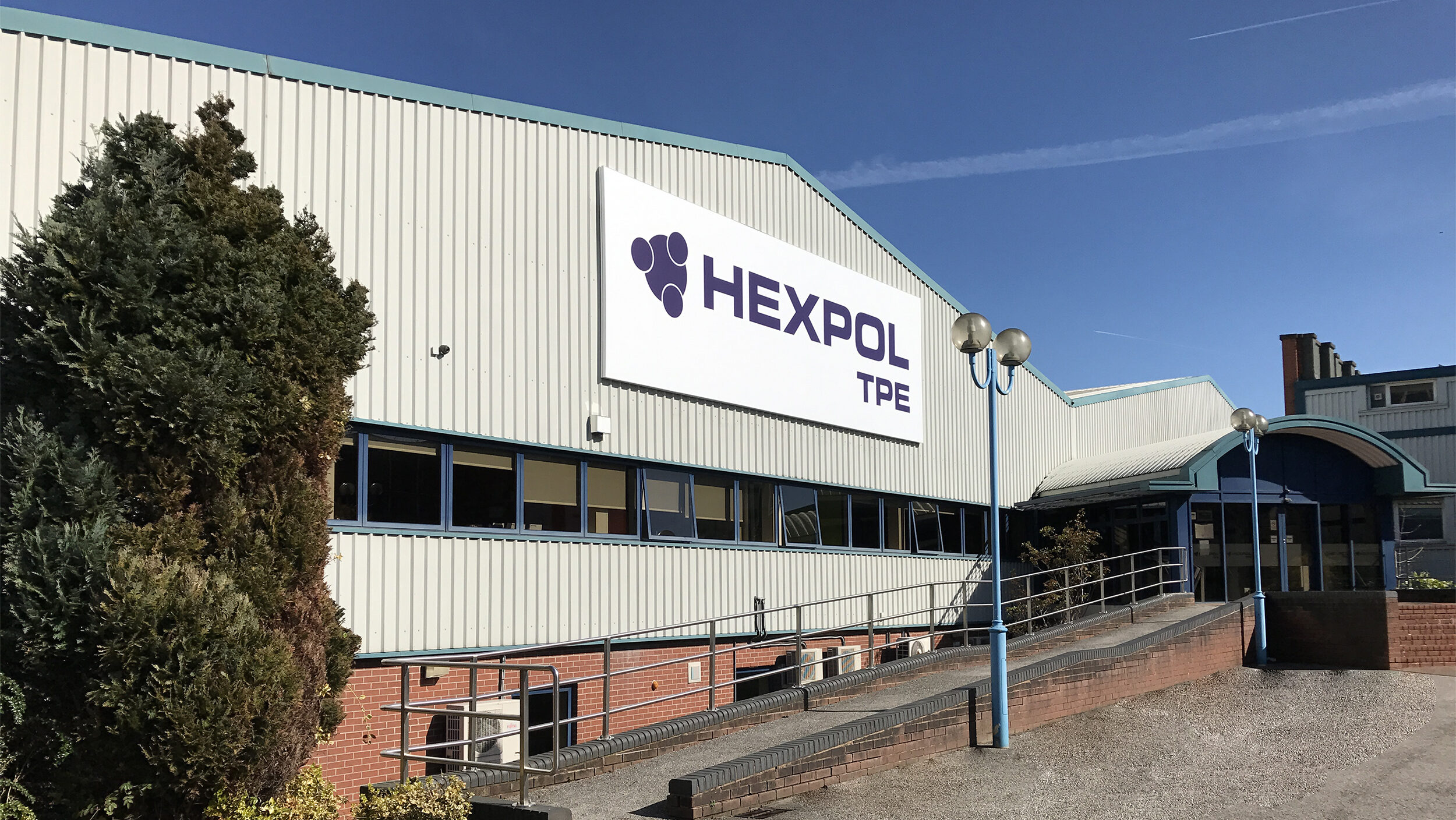
The OECD estimates that the life-cycle emissions of plastics are responsible for around 3.4% of global greenhouse gas emissions, with 90% of these emissions coming from their production and conversion from fossil fuels. Like many, organisations in the sector are realising that they must decarbonise – not just out of a moral obligation to ensure a liveable climate, but increasingly, to ensure regulatory compliance and competitive standing.
One polymer compounder based in Manchester is leading the charge. HEXPOL TPE is increasing its resilience in the face of climate change and associated policy by equipping and empowering all its employees to deliver decarbonisation in their jobs – whatever their role may be.
Discovering Carbon Literacy as a tool
HEXPOL TPE first heard about Carbon Literacy training when it kept coming up in other sustainability and marketing courses Kirsty Wood, then Development Technologist & Sustainability Lead, and Jill Bradford, Global Marketing & PR Manager, had attended. Acutely aware of the need to address their carbon footprint while avoiding any unintentional greenwashing, they were keen to learn more about what this tool could offer.
Carbon Literacy is designed to be tailored so it’s relevant to its specific audience. So, looking for a course that would best meet their needs, Kirsty and Jill joined Carbon Literacy for SMEs; a course delivered by Carbon Literacy Trainer-turned-Project Advocate, Christiane Startin Lorent who has delivered training to over 260 learners from SMEs across the UK. While HEXPOL TPE is part of a larger group internationally, its UK site is a Limited company with approximately 50 staff, so they felt they were in the right company among participants from other small and medium-sized businesses looking to start their carbon reduction journey.
Indeed, the fact that Carbon Literacy emphasises peer-to-peer delivery, and making it relevant to its learners, really resonated with Kirsty and Jill. They left the training inspired to create a Carbon Literacy course for HEXPOL TPE focused on the plastics industry and tailored to their workforce.
A whole workforce approach
To deliver the meaningful carbon reduction required of the industry, HEXPOL TPE UK knew they needed to embed a “carbon instinct” in all employees. So, they set out from the get-go to deliver Carbon Literacy training throughout the entire business – from management to operatives.
Carbon Literacy gave HEXPOL TPE UK a framework with the flexibility to adapt it to different departments in their workforce. They began by developing a course tailored for management, sales, supply chain, and technical teams, which focused on carbon accounting and reporting and was delivered online. They recognised that every role in the company has the potential to make positive changes. So, another tailored course was developed and delivered face-to-face for the production, warehouse, and engineering teams. Enabling the people who work in production operations – and who therefore know it the best – to come up with their own ideas of practical steps they can take to bring about carbon reduction on the shop floor.
This had knock-on benefits for staff empowerment. Rather than being told what to do, the training encouraged learners to come up with their own ideas, fostering ownership. As a result, all teams are aware of their carbon impacts and are motivated to take their most significant action to reduce carbon emissions through their role.
What action is being taken?
HEXPOL TPE UK came to understand that scope 3, and specifically their raw materials, is where around 80% of their emissions come from, and so where they can have the biggest impact when it comes to carbon reduction. Numerous technical staff focused their individual and group action pledges in this area.
As Technical Manager at HEXPOL TPE UK, Andy is part of the team responsible for the development of Thermoplastic Elastomer (TPE) compounds used within sectors such as automotive, building and construction, sports, industrial and household. TPE compounds are blends of rubbers, plastics, oils and fillers in various proportions, formulated to meet the required properties of an end product such as a car mudflap, cable insulation or window sealing gasket. Andy pledged to focus on developing TPEs using recycled raw materials; replacing virgin polymers with recycled alternatives, or those recycled from polymer scrap created from their customers’ manufacturing processes. He recognised that this would reduce the demand for fossil feedstocks used during the manufacture of virgin polymers, reduce waste and the impact of landfills.
Development Technologist & Sustainability Lead, Ellie, supported this group action with an individual pledge to find these alternative raw materials that carry a lower CO2e, with an additional focus on local sourcing to reduce emissions from transportation. Ellie also went on to help deliver the face-to-face Carbon Literacy training at HEXPOL TPE UK.
Many operational staff made pledges that will improve the efficiency of the production equipment, for example, turning off pumps when not in use, preventing oil leaks, and filtering waste oil to be reused - all of which will save money in the process.
To date, HEXPOL TPE has certified 58 learners. The HEXPOL TPE team in Manchester hopes to spread the training and action it has inspired to other HEXPOL sites, customers, and suppliers in their value chain.
Inspired to start your journey?
If you’re part of a small team – whether as an SME or an individual site of a larger organisation – and are interested in Carbon Literacy, but worried you lack the resources to get started, we’ve got just the solution.
The recently launched SME Course Kit is a comprehensive course covering climate change impacts, carbon footprints, policy positions, and actionable strategies, to help your business become a cornerstone in building a zero-carbon future.
Find out more about the Course Kit at our SMEs webpage.
- SEO Powered Content & PR Distribution. Get Amplified Today.
- PlatoData.Network Vertical Generative Ai. Empower Yourself. Access Here.
- PlatoAiStream. Web3 Intelligence. Knowledge Amplified. Access Here.
- PlatoESG. Carbon, CleanTech, Energy, Environment, Solar, Waste Management. Access Here.
- PlatoHealth. Biotech and Clinical Trials Intelligence. Access Here.
- Source: https://carbonliteracy.com/spotlight-on-hexpol-tpe/?utm_source=rss&utm_medium=rss&utm_campaign=spotlight-on-hexpol-tpe
